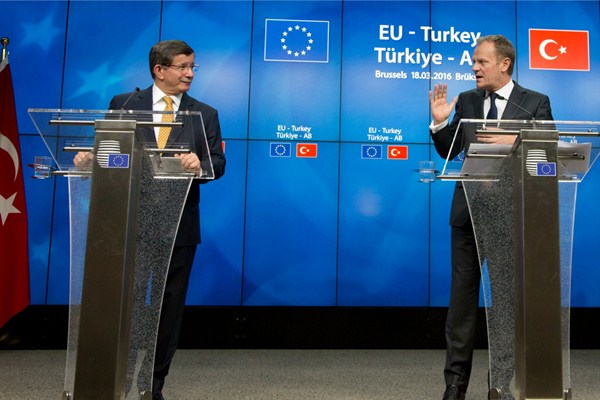The recent terrorist attacks in Belgium exposed critical deficiencies in Europe’s intelligence agencies. Soon after the attacks in late March, the Turkish government announced that, in July 2015, it had arrested Ibrahim El Bakraoui, a Belgian responsible for the Brussels airport bombing, and deported him to the Netherlands after determining that he intended to join the self-proclaimed Islamic State. European authorities never followed up.
It was just the latest sign of the European Union and Turkey’s failure to cooperate on counterterrorism since the outset of the Syrian conflict. For close to three years, the European Union withheld from Turkey the names of suspected jihadis, while the Turkish government put few secondary measures in place to defend its border from infiltration. Thousands of extremists took advantage. A United Nations Security Council resolution in September 2014 helped close some of these gaps, especially by streamlining data-sharing. But the Brussels attacks were proof that more progress needs to be made on sharing intelligence about jihadi recruitment in Europe and foreign fighters returning home.
The attacks also point to the value of the coalition against the Islamic State. The formation of the coalition allowed participating countries to share more intelligence, helping to address the foreign fighter threat. These processes are not perfect. In Turkey, the recent purges of police have hurt efforts to track radical networks, and the legal code remains deficient when it comes to tracking and detaining militants. In Europe, concerns persist about the police and financial resources committed to monitoring and breaking up Islamic State cells.

